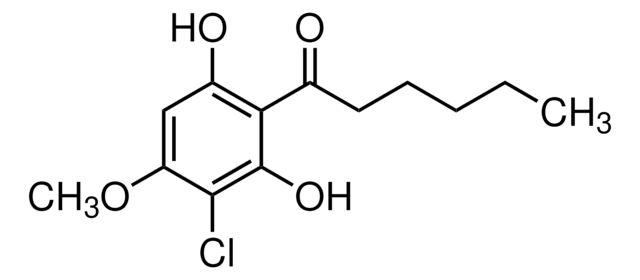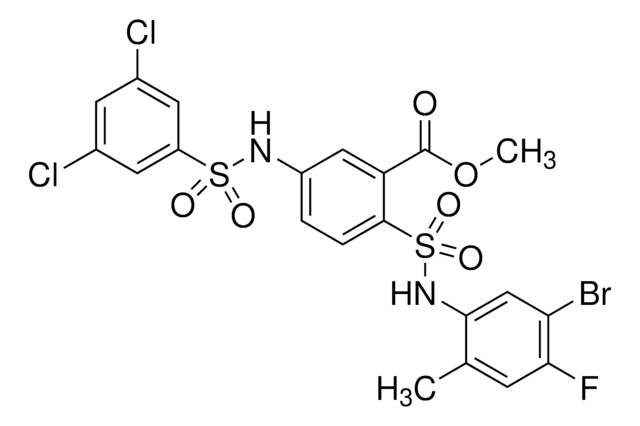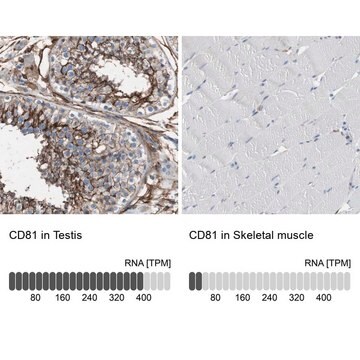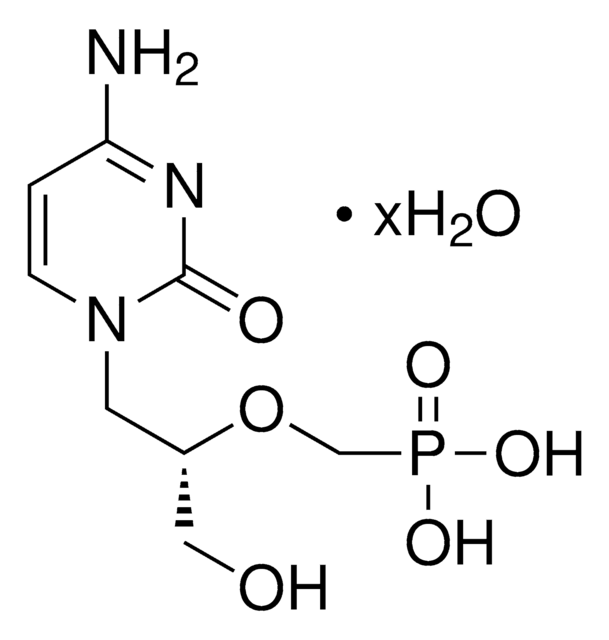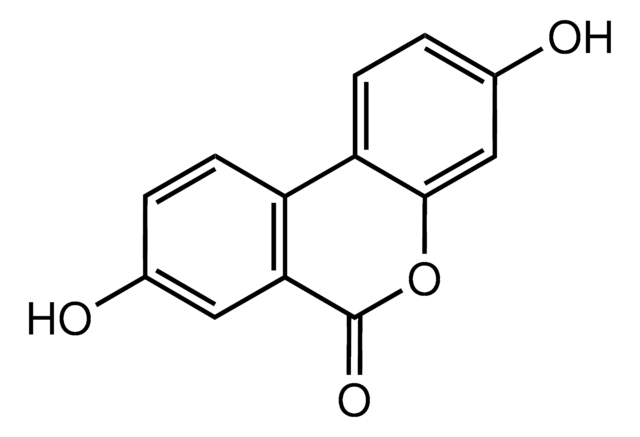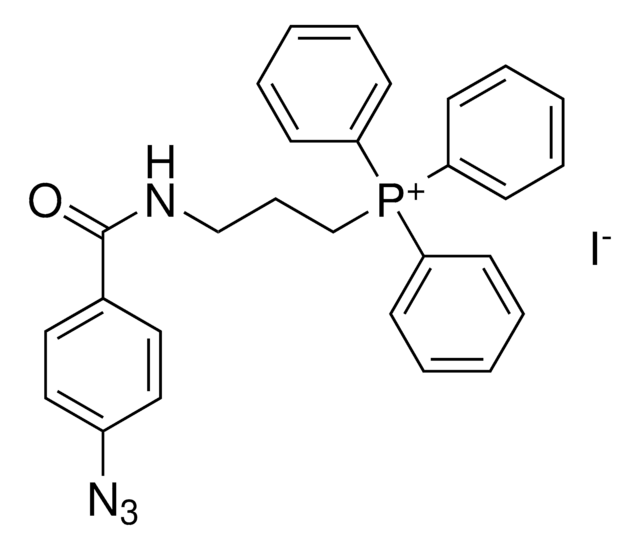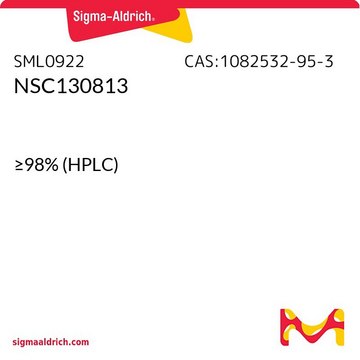SML0599
DIF-1
≥98% (HPLC)
Synonym(s):
1-(3,5-Chloro-2,6-dihydroxy-4-methoxyphenyl)-1-Hexanone
About This Item
Recommended Products
Quality Level
Assay
≥98% (HPLC)
form
powder
color
white to beige
solubility
DMSO: 20 mg/mL, clear
storage temp.
2-8°C
SMILES string
Clc1c(c(c(c(c1O)C(=O)CCCCC)O)Cl)OC
InChI
1S/C13H16Cl2O4/c1-3-4-5-6-7(16)8-11(17)9(14)13(19-2)10(15)12(8)18/h17-18H,3-6H2,1-2H3
InChI key
VUDQSRFCCHQIIU-UHFFFAOYSA-N
Related Categories
Biochem/physiol Actions
Differentiation-inducing factor-1 (DIF-1) blocks the migration and invasion of cells and decreases the expression of matrix metalloproteinase-2. It prevents the proliferation of cells using glycogen synthase kinase-3 (GSK-3)-dependent mechanism. DIF-1 is more active when compared to DIF-2 in promoting stalk cell differentiation under submerged assay conditions.
Storage Class Code
11 - Combustible Solids
WGK
WGK 3
Flash Point(F)
Not applicable
Flash Point(C)
Not applicable
Regulatory Listings
Regulatory Listings are mainly provided for chemical products. Only limited information can be provided here for non-chemical products. No entry means none of the components are listed. It is the user’s obligation to ensure the safe and legal use of the product.
JAN Code
SML0599-5MG:
SML0599-25MG:
SML0599-BULK:
SML0599-VAR:
Choose from one of the most recent versions:
Certificates of Analysis (COA)
Don't see the Right Version?
If you require a particular version, you can look up a specific certificate by the Lot or Batch number.
Already Own This Product?
Find documentation for the products that you have recently purchased in the Document Library.
Our team of scientists has experience in all areas of research including Life Science, Material Science, Chemical Synthesis, Chromatography, Analytical and many others.
Contact Technical Service